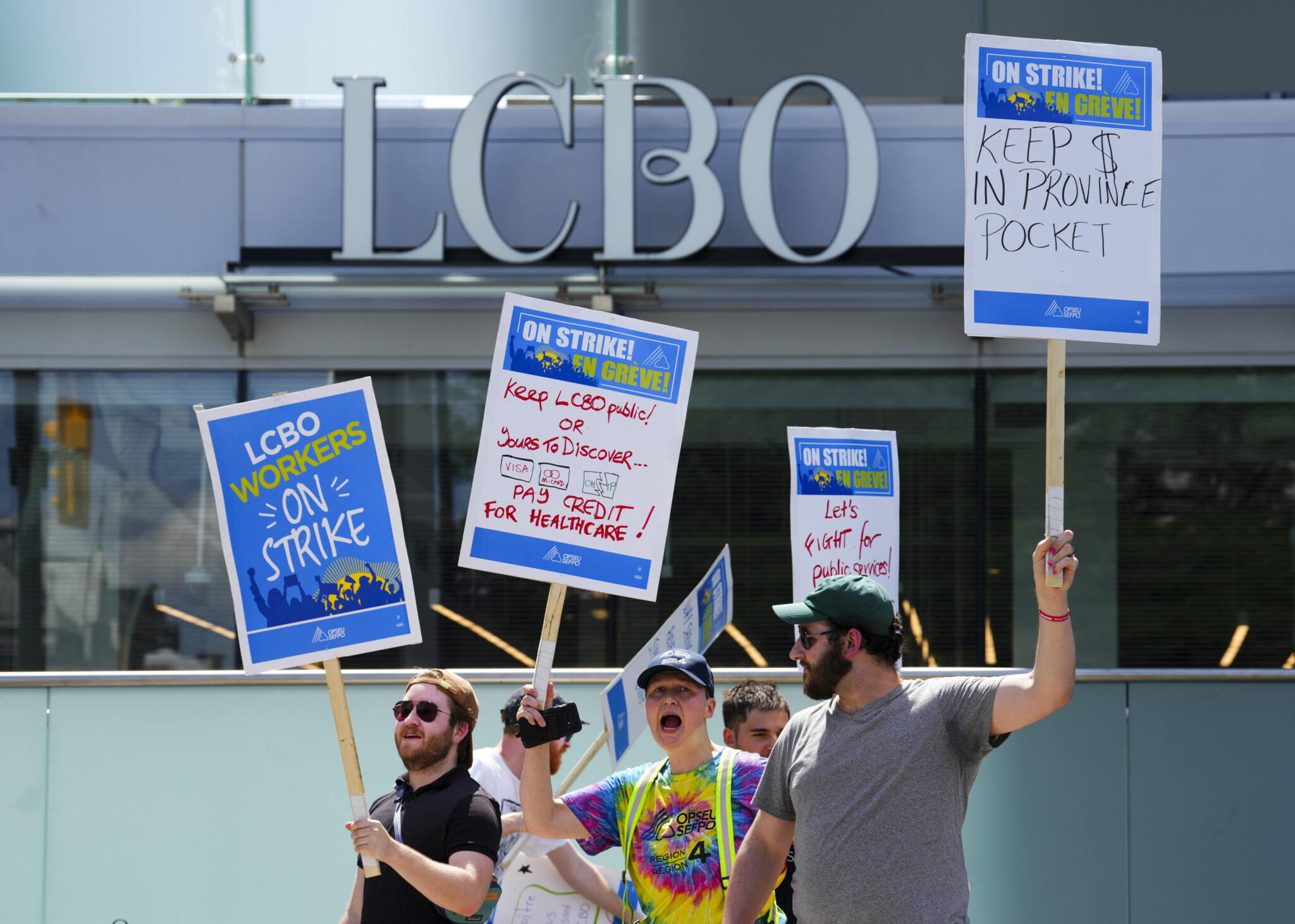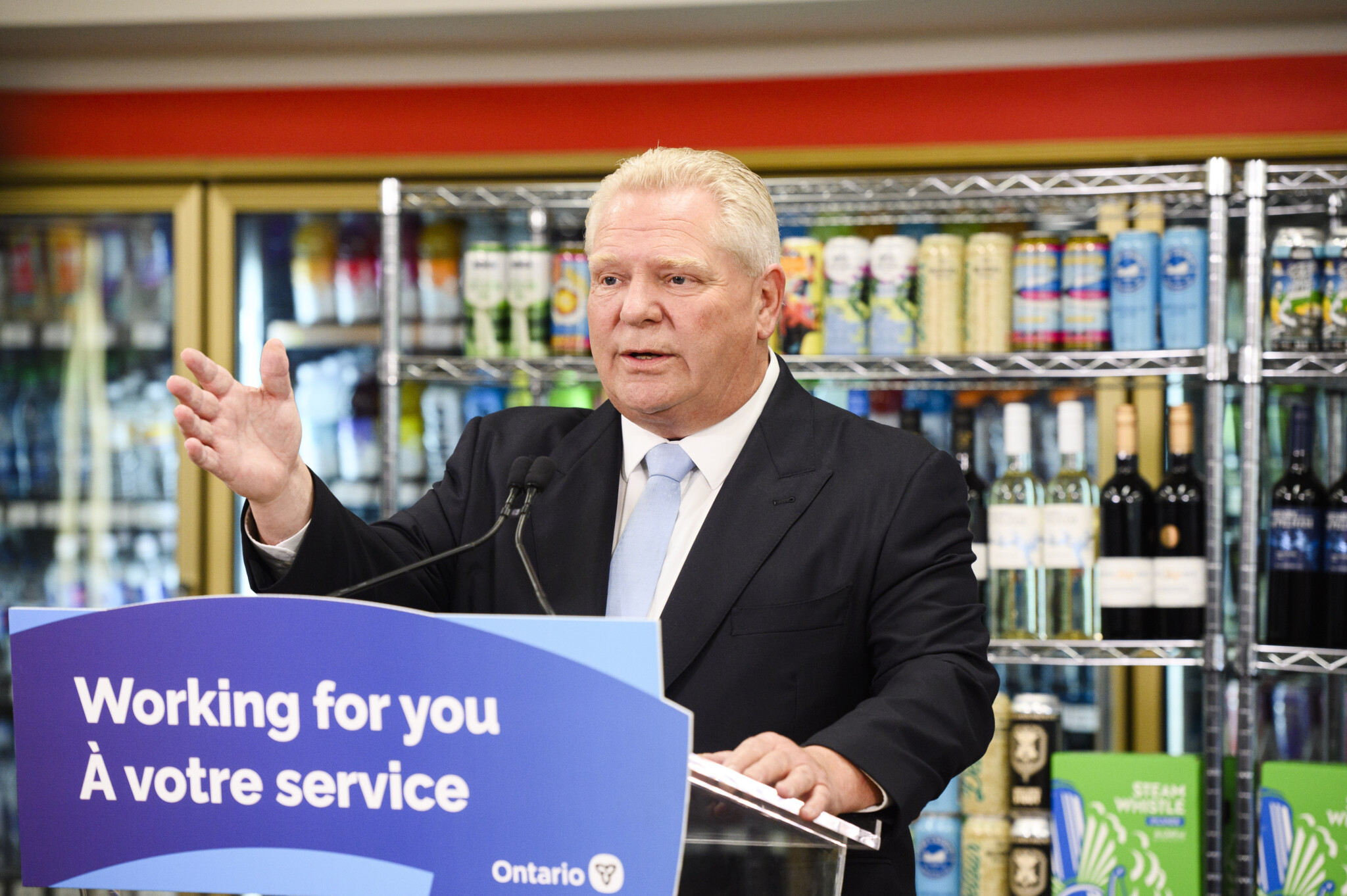July 2024, Toronto
Prohibition ends in Ontario at midnight on Friday, July 5th. The Liquor Control Board of Ontario is on strike for the first time in its 97-year history. Its physical retail operation has ceased; locked out by management for two weeks, with a promise to reopen with or without the labour of the Ontario Public Service Employees Union.
By midmorning, at Summerhill, the site of one of the LCBO’s bigger stores, the scene is quiet. The evening before, the wine correspondent for a national news site had lined up there quietly to buy a couple of cases of wine to keep his cellar stocked in case supplies were tight because of the strike. Now the parking lot is empty, and the lights are off.
At lunch, the correspondent (who is on holiday) has a beer that he enjoys. It comes from a craft brewery a block away, so he buys a bunch of cans at their shop, and sees they also stock some bottles of imported wine, so he picks up a couple of those too.
Later that Friday night, he sees a marketing email from a wine agent and clicks through on an offer for a case of Italian red wine he’s enjoyed in the past. The price is right, so he puts a case in his cart and checks out. On Monday morning he receives a confirmation of his order, and the case arrives at 10 o’clock Tuesday morning.
He then decides to complement the red with a mixed case of white and rosé wines from a Niagara producer he likes. It will be at his door on Thursday.
The world has not ended. But a new world has just begun.
October 1995, New York City
A young man from Canada, with a junior job in marketing, has been flown to Manhattan to meet with an advertising agency employed by his firm. When the meetings are over, he checks out of his free hotel room and goes on to stay an extra two nights, sleeping on the couch of friends of friends in the Lower East Side.
Wandering along Second Avenue he walks into a liquor store to buy the hostess a gift. He is greeted by friendly gentlemen at the counter who stands behind several open bottles of wine, and is invited to try them and told they are on special that day.
He expresses surprise at the offer and compliments the shopkeeper on the interesting selection of wines, which includes many he has only read about. He is asked where he is from. The shopkeeper chuckles at his answer and welcomes him to the Free World.
March 2020 to February 2022, Toronto
The world has been locked down and shut down. It opens up sometimes, and it gets closed back down sometimes. The LCBO remains more or less open, but the hospitality industry in Ontario, like the rest of the country, is in crisis and restaurants depend on takeout orders to survive.
The provincial government announces that it will allow restaurants to sell beverage alcohol for takeout. Many become “bottle shops,” selling their wine inventory out the door.
A middle-aged regular buys a few cans of marked-up craft beer from his local pub because he wants to give them his business. He drinks one in the company of his dog on a park bench, and on the way home he stops by the neighbourhood’s high-end Italian restaurant.
The bar has been converted into a shelf offering wine for sale. He buys a modestly priced bottle of Vermentino because he used to get that there by the glass. Then, he is persuaded by the sommelier, who has become the bottle shop’s cashier, to try a more expensive Nebbiolo with his dinner that night.
His hands are full of bags of beer and wine (and a dog leash). He walks by the LCBO without going in, not quite realizing how much, and how quickly, the world has changed.

Liquor Control Board of Ontario employees picket downtown Ottawa, July 5, 2024. Sean Kilpatrick/The Canadian Press.
***
Doug Ford was asked if he would negotiate with OPSEU, the striking public servants union, over the liberalization of ready-to-drink alcoholic beverages. The Ontario Premier told a press conference on July 10th, “Let me be very clear: it’s done, it’s gone. That ship has sailed and it’s halfway across Lake Ontario.” Has it ever sailed, and it left port a long time ago.
I subscribe to a number of wine newsletters from the U.K. A number of them will periodically review the wines available at British supermarkets. These are “white label” products with names like “The Best Grüner Veltliner” or “[Name of Grocer] Australian Shiraz.” They typically cost the equivalent of 15 to 20 Canadian dollars. Most are pretty pedestrian, but sometimes there will be something exotic and interesting.
In my travels, I have met some of the buyers for the supermarkets’ lines of wine. They are typically masters of wine and thoroughly knowledgeable. They are always looking for producers, like co-operatives, with extra wine to sell at the best price. Their employers are willing to try new and unusual things because product differentiation is a competitive marketing strategy.
Every jurisdiction in the world regulates and taxes alcohol. A small and shrinking group of them manage these functions by monopolizing the trade of it. These monopolies are neither good for producers nor consumers, who must ultimately accept the intermediary monopoly’s take-it-or-leave-it terms if they wish to do business with each other.
The experiments of the liberalization of restaurant alcohol and sales of beer, wine, and cider at privately owned retailers gave Ontarians a glimpse of what life might be like without the LCBO retail stores. Some of us, who knew to order directly from local producers or importing agents already knew the Control Board had long outlived its usefulness.
The Ford government seems to understand that the jig is up, and most people would rather live in a normal alcohol jurisdiction where what they buy to drink, and where they buy it, isn’t determined by a government monopoly. If we have to wait a couple of days for a delivery of wine, drive an extra few kilometres to visit the local brewery, or take it easy on the gin and tonics for a fortnight to get there, it seems like a small price to pay.









